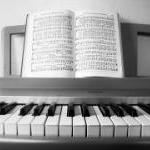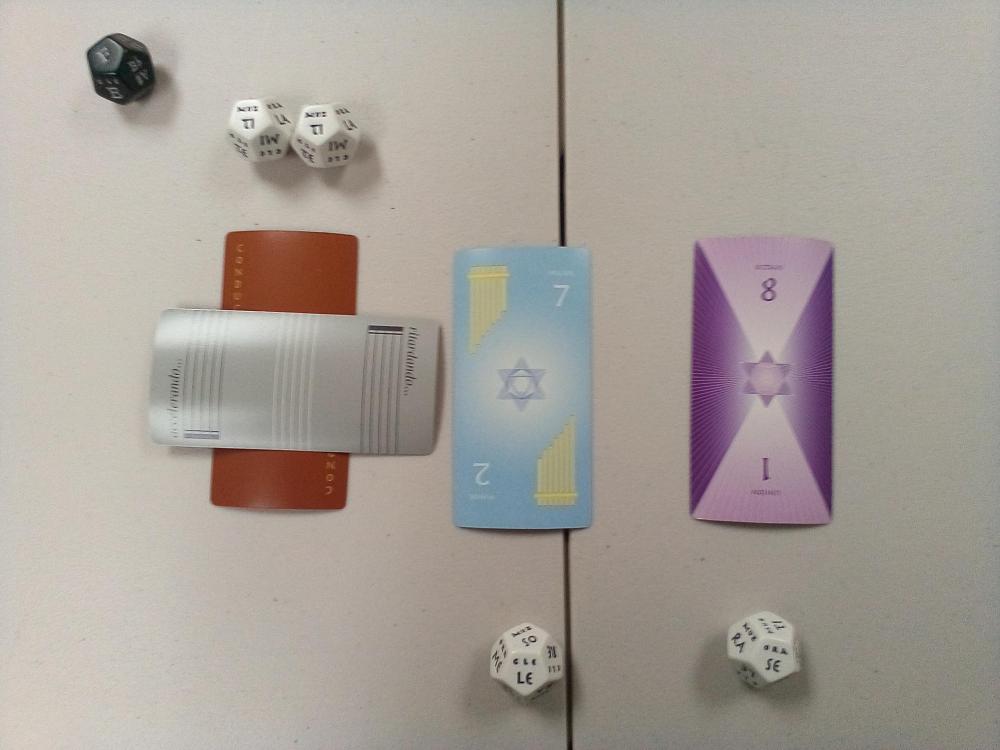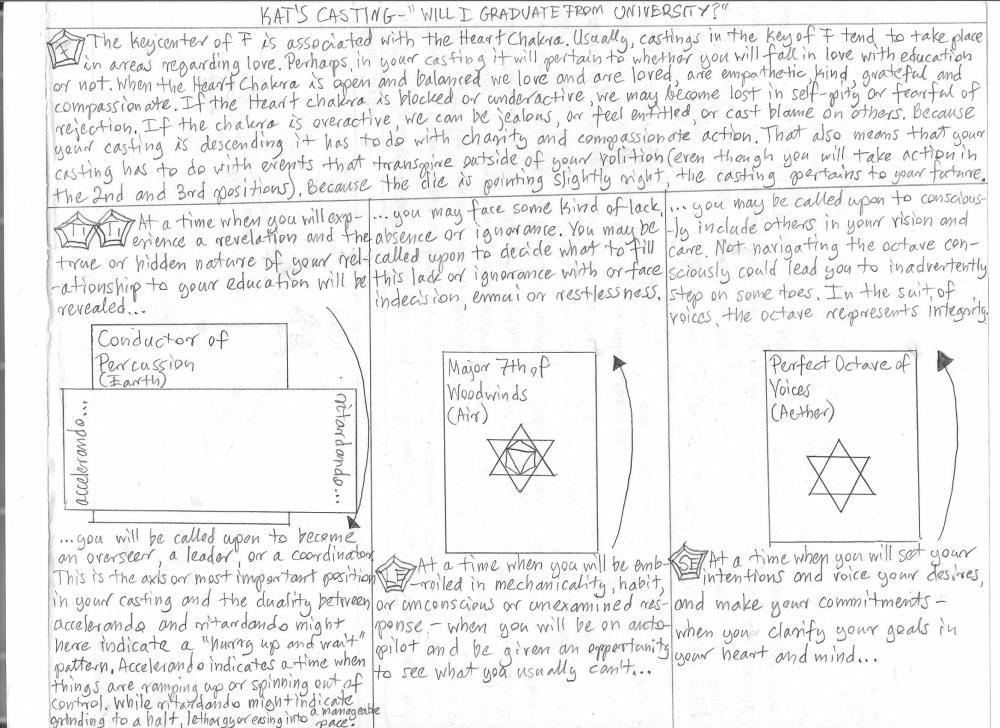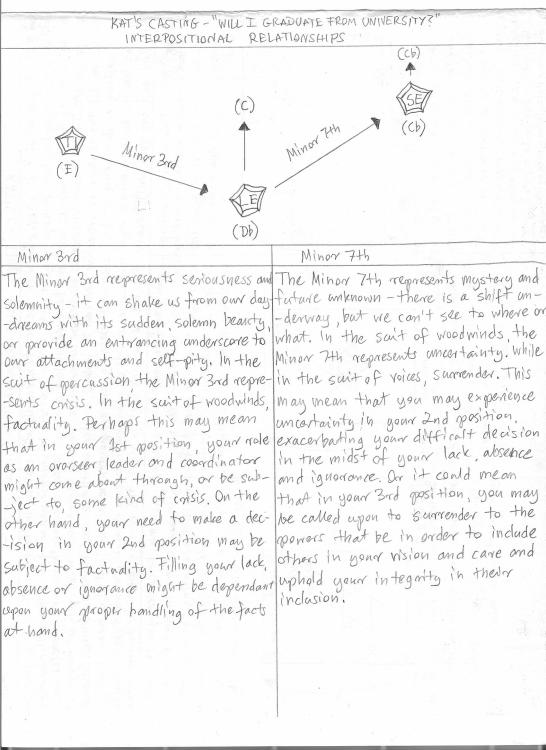All Activity
- Past hour
-

Oboe Concerto
Henry Ng Tsz Kiu replied to BlackkBeethoven's topic in Incomplete Works; Writer's Block and Suggestions
I want to go from Fm to C#m, though Still easy, though - Today
-

Oboe Concerto
BlackkBeethoven replied to BlackkBeethoven's topic in Incomplete Works; Writer's Block and Suggestions
I want to go from Fm to C#m, though -

Oboe Concerto
Henry Ng Tsz Kiu replied to BlackkBeethoven's topic in Incomplete Works; Writer's Block and Suggestions
Yeah it's easy to modulate from C# minor back, just through D flat major and then F minor! -

Oboe Concerto
BlackkBeethoven replied to BlackkBeethoven's topic in Incomplete Works; Writer's Block and Suggestions
Dramatic chord change from the key of Fm and Dbm/C#m? The change will be happening under a sustained tone, and Ab is that sustained tone... Any thoughts? -
chopin started following Kat's Casting - "Will I graduate from University?"
-
Kat's Casting - "Will I graduate from University?"
chopin replied to PeterthePapercomPoser's topic in Chamber Music
So far this is one of my favorites that you have done. The trio work well together, and this is certainly one of the most unique castings you've composed. I can see this being converted to just a piano, if you ever wanted to create an Etude out of this. It would be fun to play and listen to, and potentially falls into that Etude category. And like always, your recordings are getting really, really good.- 1 reply
-
- 1
-

- Yesterday
-

Dance Of The Moonlit Clouds (Piano solo)
Kvothe replied to elmarad40's topic in Piano Music, Solo Keyboard
@elmarad40 You are welcome -
Hahaha thank you.
-
Dance Of The Moonlit Clouds (Piano solo)
elmarad40 replied to elmarad40's topic in Piano Music, Solo Keyboard
Thank you for your reply Kvothe. I am currently taking courses in music harmony and classical piano. So in the coming years, counterpoint will also come up as a field of study. I am aware of the books, however i am trying firstly to develop my skills gradually. I also own the Study Of Orchestration by Samuel Adler, which i hope to read and undestand some time in the future. Thank you for the feedback and the book propositions! -
Dance Of The Moonlit Clouds (Piano solo)
elmarad40 replied to elmarad40's topic in Piano Music, Solo Keyboard
Thank you JP S. i watched the video and found it helpful. I will try to apply it to my compositiion as well as other that i create. I am currently taking courses in music Harmony and classical piano. And yes, i tend to put a lot of ideas in my composition so that is something i should also look into in the future in order not to overpopulate the songs and learn how to develop each idea fully. Thank you again for the reply. -

Dance Of The Moonlit Clouds (Piano solo)
Kvothe replied to elmarad40's topic in Piano Music, Solo Keyboard
Hi @elmarad40 I have listened to your piano composition and followed it with the score. I think you have potential here, for there are motives that can lead into strong phrases, which lead into either period or sentence form. Then you can create small form (ABA), which would work great for this. I think Ryan video and Schoenberg book "funadmentals of music composition" would help you greatly. Schoenberg is not expensive. There are books, but I do not your budget. One is "Anysis of Classical forms" and "Musical Composition" You might also look into harmony and counterpoint. Walter piston has one on harmony and one counterpoint. But there others. And there courses you can take. If you are studying composing, see if you can courses. If not, it is harder. I know when I was music major, there were none, sadly. -

Vocalise Romance in C Minor for Voice and Piano
JorgeDavid replied to JorgeDavid's topic in Choral, Vocal
Thanks for your nice words and for listening, @MJFOBOE. Nino Rota is one of my favorite composers (specially his "circus" music) so I am really happy that you said that! 😄Glad you enjoyed! Thank you! -
Is Video Game Music Declining In Popularity?
AngelCityOutlaw replied to AngelCityOutlaw's topic in Composers' Headquarters
There was something I was going to say about this part specifically and I remember like 3 days ago saying "When I get home I have to remember to say it" but now I'll be damned if I can remember what it was. -
Thanks Vince! Yeah, in the case of this casting, where we ended up (by pure chance and luck) having 10 unique solfege degrees thrown with the solfege dice, it almost became a serial tone row. If we had gotten two more solfege degrees (Do and Fa) it would have been a complete 12-tone row. Thanks for your review! You're welcome and thank you for buying me the harmonica and Muzoracle! You've enriched my and other's lives for sure! This has been the most drawn out casting I have done thus far and I hope you gain from it!
- Last week
-
Well, keep in mind I don't write concert orchestral works much and neither did the composers I worked with when they were recording orchestras. So I'm not an expert on concerts. But from what I DO know about concert composers: Most of them come through academia. If you're a student, that's your best shot. Some churches might also have small orchestras. Otherwise, volunteering or getting some other job with an orchestra and building up a network with orchestra directors and what not you may eventually get them to perform some of your shorter pieces (not much longer than 4 minutes) in a concert. If you really build up a good relationship with them, they might even start commissioning you, which a single commission could be a 5-figure amount of money. But that would probably take years of networking and essentially proving yourself. The reason it's so difficult to get an orchestra to play new music in a concert, even if it is very good, is that orchestras have become very niche and they need repertoire on the bill that is basically guaranteed to put butts in seats; names that people recognize. If there are too many names people don't know, then they risk not selling many tickets. That's why so many concerts these days pull from games and films: It's the best source of "new" material that people will pay to see. Honestly, you may just want to reach out to orchestras near you and straight-up ask them about playing your pieces and what sort of hoops you'd have to jump through (don't phrase it like that though).
-
Ah there's the rub: what is the best route then to be consider for new composers?
-
Churchcantor started following Variations on Mozart/Süssmeyr Requiem
-
Variations on Mozart/Süssmeyr Requiem
Churchcantor replied to Alex Weidmann's topic in Choral, Vocal
Well, that sounds cool! I will give it a listen!- 1 reply
-
- 1
-

-
Vocalise Romance in C Minor for Voice and Piano
MJFOBOE replied to JorgeDavid's topic in Choral, Vocal
I find the music in the tradition of Ennio Morricone and Nino Rota .... their Italian movie scores ... a bit of Film Noire here ... hauntingly beautiful music. Mark -
AlexeyZor joined the community
-
Thank you for your compliment!
-
Thank you for your compliment! This is not a lyric adapted from any Celtic legend. It's something I came up with myself, and the inspiration came from the game "Warcraft III".
- 2 replies
-
- 1
-

-
- celtic
- world music
-
(and 3 more)
Tagged with:
-
Henry Ng Tsz Kiu started following Kat's Casting - "Will I graduate from University?"
-
If you're just wanting an orchestra to perform your uncommissioned music, then they may charge a rate to print sheet music copies and otherwise prepare the piece. Especially for student pieces. Like, recording an orchestra for example typically costs 10s of thousands per hour. In concert music, if they commission a piece, they would pay for that piece and then pay out performance royalties to the PRO on top of that. Also in concert music, if they did not commission the piece, but choose to perform it in a concert, the composer is paid royalties through their PRO. BUT I'm not aware of many orchestras outside of music college ones being in the business of playing concert pieces that that don't already come from classical repertoire, films or video games anyway. In short: If it's for a concert and you're trying to get them to play your piece in it, they may want some amount of money to prepare the piece, but not a raw fee simply to "play" it. They have to pay to play it. But it is a bit of a moot point. Most orchestras, at least that I'm aware of, won't even give an unknown composer consideration for concerts.
-
If a work is program, then shouldn't composer be paid?
-
PeterthePapercomPoser started following Kat's Casting - "Will I graduate from University?"
-
I have written another piece for my friend Kat's Casting! This time Kat asked the Muzoracle if she will graduate from a 4-year university. (Muzoracle is a storytelling/divination tool similar to the Tarot card deck, but with cards with musical concepts and 12-sided Musician's dice and Solfege dice.) My interpretation of the cards and dice are displayed below. Since the first card drawn was a Conductor of Percussion card, I chose to use Piano, an instrument that Kat likes. The second card drawn was a Major 7th of Woodwinds, so I chose Clarinet, an instrument that Kat used to play. And finally the third card drawn was an Octave of Voices card, so I chose a solo Soprano singer. If you'd like to find out more about Muzoracle and how castings are interpreted go here: https://muzoracle.net/ This short musical interpretation of Kat's Casting is about a minute and a half long. Since the black 12-sided Musician's Die landed on F, the piece is in the key of F major. I created the following melodic/harmonic underdrawing guided by the cards and dice. The first solfege die landed on Ti and the card indicated a percussion instrument - in this case, Piano. So I had the Piano start solo on an E (in the left hand). Then I had the Clarinet and Soprano enter on an anacrusis into a melody that uses E, Db, C, and B. Since the interval of a Minor 2nd is prominent in the casting, I decided to transpose the whole melodic/harmonic underdrawing down a Minor 2nd giving me access to tones needed to create a V7 of F. I then used that dominant to bring the piece into F major and repeat the melodies and harmonies at the pitch level of F before repeating the piece and ending on an F7 #11 chord. I also liberally used accelerandi and ritardandi, guided by the accelerando/ritardando card in the 1st position. If you've gotten this far, thanks for reading! And I hope you enjoy listening to this short chamber work I wrote to represent Kat's Casting. Comments, critiques, suggestions, or observations are of course, always welcome. Thanks for listening!




.thumb.png.8b5b433a341551e913a34392660bc95b.png)




